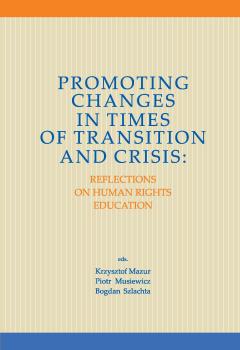Religion in Human Rights Education or Human Rights Education by Religious Bodies? .......... 297
Streszczenie
States have not considered it difficult to allow their citizens the freedom to think. The difficulties start when we come to the right to express one’s conviction, or the right to or-ganize as a community in order to promote a religion or belief, or the right to act in accord-ance with one’s conscience in cases where domestic legal systems seem to require uniform behaviour irrespective of the different convictions of individuals. The real problem con-cerning freedom of religion does not concern the nucleus of the right itself (the freedom of an inner state of mind), but issues that also relate to other human rights. In this sense, freedom of religion gives clear evidence that human rights cannot be protected separately from each other but are realized only as a totality. Of all secular institutions, it is the United Nations that gives Freedom of Religion or Belief a clear and prominent place in its catalogue of rights, as Article 18 in its profoundly significant Universal Declaration of Human Rights. Given the wide range of religions that they inherently must accommodate and protect, global institutions such as the U.N. of necessity must incorporate broadly tolerant and inclusive norms. While many doubt that today the Universal Declaration would receive sufficient support for affirmation among the present-day larger and more inclusive roster of UN membership, it succeeded quite handily in 1948. And Article 18 defines Freedom of Religion or Belief as an inalienable and fundamental right equal to all others and inherent in every person by virtue of member-ship in the human family. But of what practical value is a right if a person does not know she or he has it? And why would they not know – because they are not taught it. In the case of freedom of religion or belief, in particular, they do not know about it because there isn’t much religion in most human rights education. This paper draws attention to the growing problem of persecution and violence caused by intolerance of religion and the urgent need of human rights educators within religious bodies to join with increasing vigour and more generous budgets the whole of the human rights movement.





